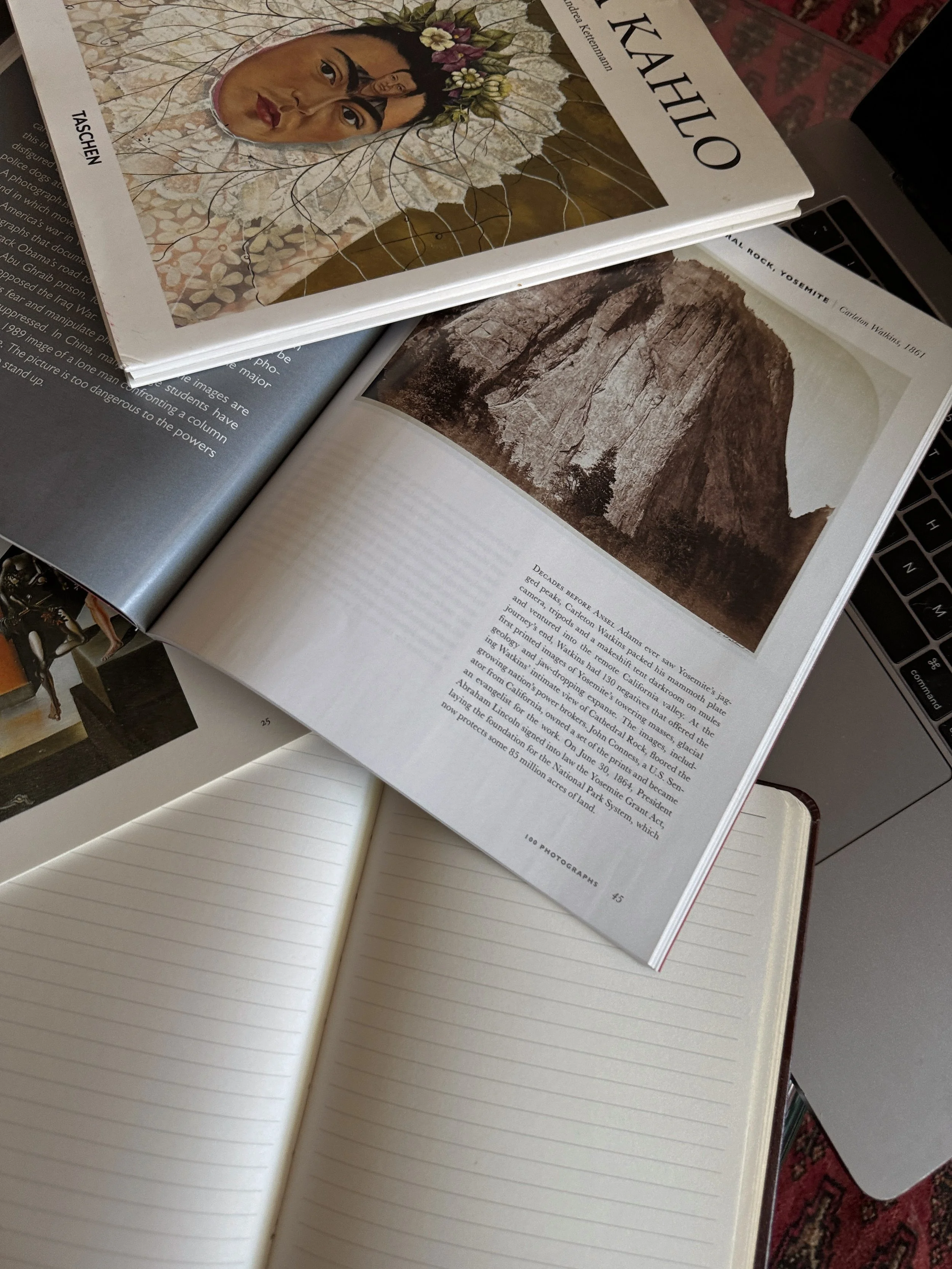How to Overcome Imposter Syndrome As a Creative
Imposter Syndrome is something that most creatives suffer from.
Thoughts such as: “I am not good enough,” “I don’t deserve this,” or “People will find out I’m a fraud.”
If you are currently struggling with these thoughts, here is a powerful tool you can use to overcome this…
I recently came across a method called “The Work” by Byron Katie that can help you question and dismantle the limiting beliefs fueling these imposter syndrome thoughts and feelings.
Here’s how to use the The Work to help you overcome imposter syndrome:
01: identity the negative thought pattern or belief
Notice a specific thought that comes up when you’re feeling like an imposter.
Example: “I am not qualified for this job.”
02: The Four Questions from “The Work” by Byron Katie
Is this true?
Ask yourself: Is it really true that I am not qualified for this job?
Can you absolutely know that it’s true?
Go deeper: Can I absolutely know that I’m not qualified for this job?
Upon reflecting this, you may notice or realize that you do have certain skills and experiences that are being overlooked or undervalued.
How do you react, what happens, when you believe that thought?
How does this belief make you feel and act? Do you shrink, freeze, avoid taking action, or downplay your achievements?
Example: “When I believe I am not qualified, I feel anxious, I hesitate to take on challenges, and I assume others are better than me or they are more qualified than me.”
Who would you be without the thought?
Imagine what it would feel like if you didn’t have the belief that you’re not qualified.
How would you act?
Example: “Without the thought, I would feel confident, I would approach my work with a sense of calmness, and I would trust my abilities and skillset. I would show up online with confidence and attract consistent clients.”
You can meditate on this for a moment. How does this person feel, think and act?
03: The Turnaround
Now, let’s explore turnarounds that challenge the original belief. You may find evidence for alternative, more empowering self-beliefs.
Turnaround to the opposite:
“I AM qualified for this job.”
Look for evidence that supports this.
What skills, experience, or achievements show that you are, in fact, qualified?
Example: “I have the degree, I’ve completed similar projects before, I have positive client reviews, I get nice comments about my work on my Instagram, my friends love my work, I’ve completed this course or certification, I got published on… etc.”
I would suggest keeping a folder with all of this—screenshots of compliments, achievements, or positive reviews, so you can go back for reference when negative thoughts arise.
Turnaround to the self: “I’m not recognizing my qualifications.”
This invites you to consider how you might be overlooking your strengths or downplaying your accomplishments and talent.
Example: “I often forget to give myself credit for what I’ve already accomplished.”
Turnaround to others: “Others may not be as qualified as I think they are.”
Consider that others, too, may feel unsure about themselves, and what you perceive as their confidence could be hiding self-doubt.
Example: “Even successful people make mistakes or feel uncertain, just like me.” “I can only get better from experience.”
“Never regret your mistakes. Admire the courage it took to attempt the unknown.” -Unknown source
Practice:
Let’s say you've been given a major project, but you feel like you don’t deserve it. You might believe:
Belief: “I don’t deserve this opportunity.”
Using “The Work”:
Is it true? (Maybe yes, maybe no.)
Can I absolutely know that it’s true? (Not really, there’s a reason I was chosen.)
How do I react when I believe that thought? (I feel insecure, anxious and I avoid putting myself out there.)
Who would I be without the thought? (I’d feel more empowered, I'd take ownership of the opportunity and I’d trust myself.)
04. Turnarounds:
“I DO deserve this opportunity.” (Find reasons why you deserve it—your hard work, education, unique skills, and dedication.)
“I don’t give myself credit for this opportunity.” (Maybe you downplay your achievements instead of recognizing your true value.)
“Others also face doubts about deserving opportunities.” (You are not alone in feeling uncertain: many people also experience imposter syndrome.)
”It is a simple practice and generous rule of life that whatever your practice, you will improve at.”
“It might have been done before, but it hasn’t been done by you!” — Big Magic, Elizabeth Gilbert.
Going beyond:
You can use reprogramming tools to get ride of any old beliefs that are still running in your subconscious and keeping you stuck.
Journaling, hypnosis, deep meditation, theta healing, family constellations, or somatic therapy. Learning about epigenetics, and psychology can also be helpful.
Your outer world is a reflection of your inner world. It all starts with self-inquiry, self-awareness, and making all the negative beliefs conscious so you can dismantle them.
By questioning your beliefs and turning them around, you can start to see that imposter syndrome is often a product of inaccurate or limiting thoughts that are running in your subconscious mind. With practice, “The Work” can help you shift your perspective from self-doubt to self-recognition. You can use it to overcome other areas of your life you struggle with such as money wounds, generational trauma or relationships.
“Until you make the unconscious conscious, it will direct your life and you will call it fate.”
―C.G. Jung
Watch: The Work by Byron Katie Energy Clearing for Abundance

